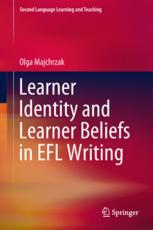

Most ebook files are in PDF format, so you can easily read them using various software such as Foxit Reader or directly on the Google Chrome browser.
Some ebook files are released by publishers in other formats such as .awz, .mobi, .epub, .fb2, etc. You may need to install specific software to read these formats on mobile/PC, such as Calibre.
Please read the tutorial at this link: https://ebookbell.com/faq
We offer FREE conversion to the popular formats you request; however, this may take some time. Therefore, right after payment, please email us, and we will try to provide the service as quickly as possible.
For some exceptional file formats or broken links (if any), please refrain from opening any disputes. Instead, email us first, and we will try to assist within a maximum of 6 hours.
EbookBell Team

5.0
30 reviewsThis book focuses on the concept of learner writer identity in the context of foreign language writing. The author demonstrates that the process of writing in a foreign language is much more complex and personal than many writing instructors may assume. The book’s theoretical chapters address such concepts as bilingualism, the process of L2 writing, and identity in L2 writing. The book’s empirical section discusses the students’ views on writing in L1 and in L2, the students’ writing processes in both languages, and the students’ identities in L1 and L2 writing. It is shown that writing in L2 poses problems of a linguistic nature; however, for the advanced EFL learners writing in L2 also creates opportunities they would never have when composing in their mother tongue.